All pointers augur economic crisis (24.03.2018)
The dollar broke its historic record yesterday. The number of unemployed rose in 2017 against the previous year by 124,000 to 3.454 million. Inflation is stuck in double figures. The current account deficit is increasing. The amount of debt is too big to roll over. The ruling party plays with figures and continues to paint a rosy picture. Addressing the business world, Deputy Prime-Minister Mehmet Şimşek said, “Be sure not to incur debt. Take on partners and open up to the capital markets. Debt is a big problem in this period.”
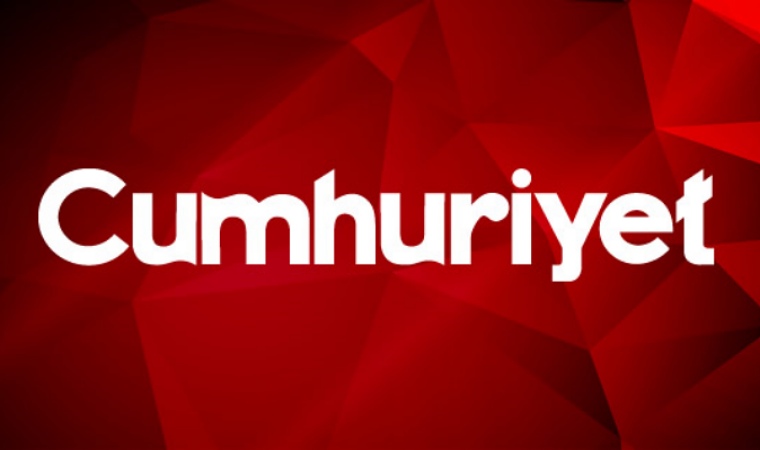
 Deputy Prime-Minister Mehmet Şimşek, pointing out that the period of growth had come to a synchronised end throughout the world, said that interest rate hikes would accelerate. Şimşek also cautioned the business world, “Be sure not to incur debt. Take on partners and open up to the capital markets. It is within your power to keep costs and expenses under control, but not to increase income. While debt forces you to try harder, it is a big problem in this period.” The seventh Uludağ Economic Summit organised by Capital and Ekonomist magazines started with “The Future” as its main topic.
Deputy Prime-Minister Mehmet Şimşek, pointing out that the period of growth had come to a synchronised end throughout the world, said that interest rate hikes would accelerate. Şimşek also cautioned the business world, “Be sure not to incur debt. Take on partners and open up to the capital markets. It is within your power to keep costs and expenses under control, but not to increase income. While debt forces you to try harder, it is a big problem in this period.” The seventh Uludağ Economic Summit organised by Capital and Ekonomist magazines started with “The Future” as its main topic.
Approaching storm
Şimşek, providing the business world with an overview of the economy at the venue, spoke of rain and a storm approaching. Şimşek, saying, “We need to repair the roof when the weather is sunny. Just now there is an abundance of money in the world and interest rates are low, but this synchronised global growth will not continue and maybe it will rain or maybe a storm will erupt,” called on companies to open up to the public and the capital markets and acquire partners in this period. Şimşek, indicating that they would give the necessary support in infrastructure terms, continued: “Acquire partners. Our aim is to take this business forward with greater distribution of capital towards the base. The banking sector’s share in financial markets is 82%. This is very high. I also have a call to the banks. Every bank has its brokerage but why do you not become investment banks in the full sense? Invest in start-ups. That is where the future is.”
New period in the offing
Mehmet Şimşek stated that a new era had been entered. Şimşek, speaking of the clear existence of a strong protectionist trend having its origin in the USA and the countermeasures this would provoke, noted that trade was the most important engine of the world economy. Şimşek, saying that, if the unfair distribution of wealth following the emergence of the global crisis turns into protectionism, it will face a huge risk, and said, “There is a need for structural reform in this period. However, in both developed countries and developing countries, there is a slow pace of structural change. Investment is at a standstill. The world is mired in debt. Total indebtedness in the world in proportion to national income has reached the 320s in percentage terms. There is currently no problem, but if interest rates rise there will be a problem repaying this debt. The world cannot keep on hiking interest rates. We must reduce the leverage rate at this time. We are confronted with a high debt load in developed and developing countries and this is impeding growth.”
Real sector unhappy
Şimşek, saying the real sector was unhappy and Turkey’s debt amounted to 141% of national income, indicated that the real sector accounted for 69% of national income. Şimşek went on, “The most important issue here is foreign exchange indebtedness. The real sector’s net foreign exchange deficit is 213 billion dollars. Our companies, having acted smartly in the short term, have accumulated foreign currency in the short term and there is no foreign exchange deficit with a one-year maturity, but the mid-term is problematic. Our real sector is not happy but, I’m sorry, we must take measures at cross purposes with you.”
We must exit the state of emergency
Turkish Industry and Business Association (TIBA) Executive Board Chair Erol Bilecik, pointing out that the EU process was pivotal on the TIBA’s agenda, said that accession negotiations must continue without needing other formulae. Bilecik commented, “Even though we have been getting negative vibes from some European countries in recent years, we must initially look at ourselves and where we are headed democratically. I think we must pass from the state of emergency process that has continued for two years to a normalisation process. The normalisation process must be speeded up.” The TIBA Chair, indicating that they were struggling in a world in which exchange rates were fluctuating almost daily, commented, “We are in a world in which interest rates increase frequently. It is impossible to reduce interest rates without being able to conquer inflation. We are all together in the same ship. It is important for the ship’s speed to be increased. We urgently want reforms to come about in the areas of education and employment. These are among the indispensable main points.” Bilecik spoke of the way that Turkey had spun a good narrative in the 2002-2007 period and of Turkey being in need of a new narrative now and the potential for this narrative to emerge from high value added technology. Bilecik, pointing out that Turkey needed to have strong institutions to enable it to be more competitive, said, “There is a need for sustainable macro-economic policies. We must do our utmost in the quest for productivity-enhancing reforms. Stability and productivity are very important for the economy.”
MY IMPRESSION
The sale of Hürriyet was on everyone’s lips
However much the economy was discussed at sessions at this year’s Uludağ Economic Summit, the main topic of interest was the sale of Hürriyet. All participants were inquiring of one another as to the effects of the sale between Demirören and Doğan Holding.
Even though the summit was well attended, it lacked the liveliness of past years. Certain figures backed out at the last moment. Furthermore, even though certain persons had given prior indication that would not attend the summit, the programme had not been updated with these names deleted.
The summit, which will accommodate nearly 1200 business people from Turkey and the world for two days, will this year also host a big start-up competition.
With it claimed at the technology session and the sessions on artificial intelligence that artificial intelligence will enable a job done today to be done 15-20 times better, it was noted that consumers are now a great deal more aware. It was stated that, in particular, 90% of the millennium generation also looked into a product’s manufacturing process when buying a product.
Within the summit, a lunch was arranged closed to the press attended by Minister Mehmet Şimşek and CEOs.
At the lunch, which was apparently dominated by rising exchange and interest rates, Şimşek is said to have told business people that major structural reforms will not be made until the 2019 elections.
The summit that has been held since 2012 has hosted many notables such as Nouriel Roubini, Marc Faber, Muhtar Kent, Jack Straw, Bülent Ecvacıbaşı, Cem Boyner, Emine Kamışlı, Hüsnü Özyeğin and Ali Kibar.
FEAR RAKING DOES THE BUSINESS
The lecture on the Future of Agriculture held within the summit, in turn, witnessed a “peaked cap revolution”. At the session moderated by Deniz Bank CEO Hakan Ateş, leading figures from the sector were decked out in peaked caps considered to symbolise farming. Chair of Sütaş’s Board of Directors, Muharrem Yılmaz, noting that the food sector was in need of long-term investments, indicated that 30% of Turkey’s total land was arable land. Yılmaz, describing the important developments that had been achieved in Turkey’s milk sector and the increase in production to 20 million tonnes, said, “Fear raking does the business in Turkey. You all try to buy milk from farms and make yoghurt at home.”
We cannot find shepherds
Ahmet Hacıince, Chair of the Board of Directors of sectoral leader Hacıince Group of Companies, pointing out that an eleven-million-hectare area used for husbandry had fallen victim to urbanisation, noted that the new generation does not want to get involved in agriculture and husbandry. He said, “Were it not for refugees, we would be unable to find shepherds to do the work. Turkey must engage in production. There is a staff of 15,000 armed people to protect the forests in Turkey, but the pastures have no guardians.”
I have been there since I was three and it moves me
Doğan Holding Board of Directors’ Chair, Begümhan Doğan Faralyalı, replied with tear-filled eyes to questions about the sale of their media outlets including media flagship Hürriyet to the Demirören Group. She noted that they had made a wonderful journey for forty years and had weighed up the timely offer and decided to sell. With reference to the magazine group which was not part of the sale, Faralyalı noted that they were not currently contemplating sale and remarked as follows: “There is no sale just now in the magazine group. Blue TV will also remain in the group. We will rather do things outside the traditional media. We will sit down and make a strategic plan. Doğan Faralyalı commented as follows with emotion over the sale filling her eyes with tears: “I am human and have feelings. I was three years old... In fact, I think we gave this sector all it deserved until the last. I have no qualms at all. We did all we could.”
We are mortgaged down to our underwear
Derimod Board of Directors’ Chair Ümit Zaim, pointing out that companies were unable to grow with interest rates being what they were, said, “We are at the stage of wondering how we are going to save our bacon never mind becoming a global brand. That’s where we are just now. Let our bank managers here not worry, either. Your money is safe. We are mortgaged down to our underwear.” Zaim, criticising the government’s Turquality decision, commented, “Decisions taken by the state must be consistent. They must not change. Turquality was five years at the outset and now there is a restriction to a single country and we are told to look out for ourselves. It would be useful if the Ministry of Economy revised this decision. You set out on the road and suddenly the decision changes.”
Adım adım krize: Tüm göstergeler alarm veriyor... Bakan 'Aman borçlanmayın' dedi

En Çok Okunan Haberler
-
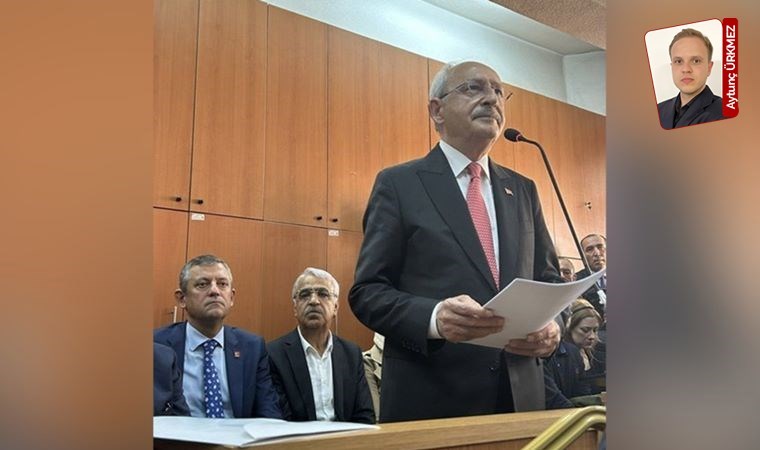 'Tarihe not düşmek için geldim'
'Tarihe not düşmek için geldim'
-
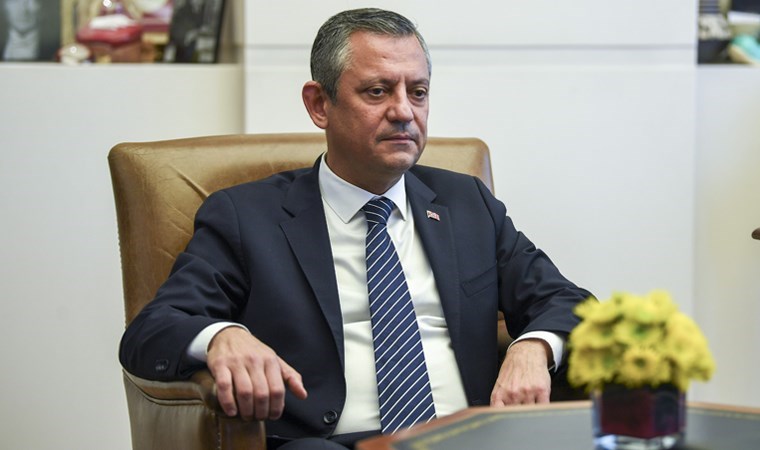 Çok konuşulacak 'adaylık' açıklaması
Çok konuşulacak 'adaylık' açıklaması
-
 Protesto eden yurttaşlara polis müdahalesi!
Protesto eden yurttaşlara polis müdahalesi!
-
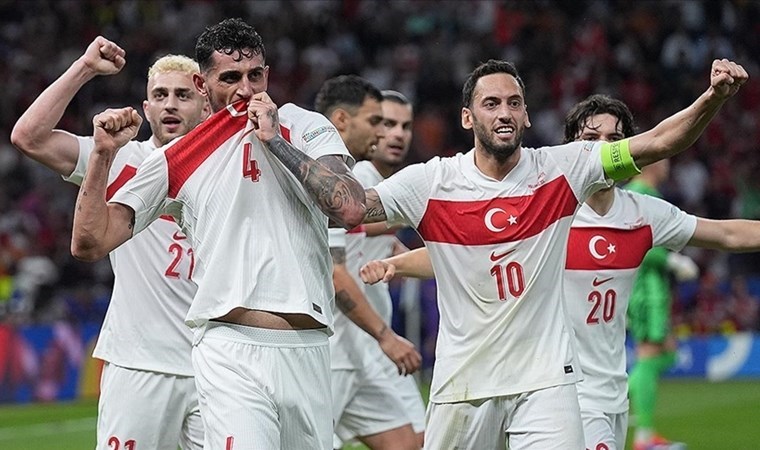 A Milli Takım'ın Uluslar Ligi'ndeki rakibi belli oldu!
A Milli Takım'ın Uluslar Ligi'ndeki rakibi belli oldu!
-
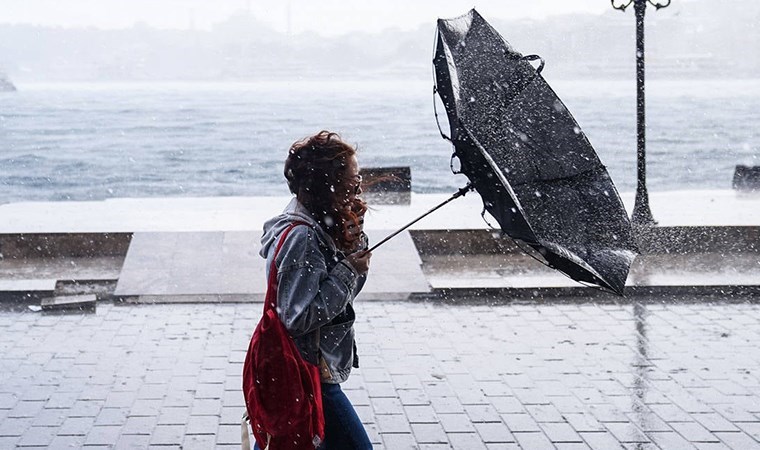 AKOM, İstanbul için 'saat' verdi: Çok kuvvetli geliyor!
AKOM, İstanbul için 'saat' verdi: Çok kuvvetli geliyor!
-
 5 yılda Türkiye'nin en büyüğü oldu: Nusret'e de satıyor
5 yılda Türkiye'nin en büyüğü oldu: Nusret'e de satıyor
-
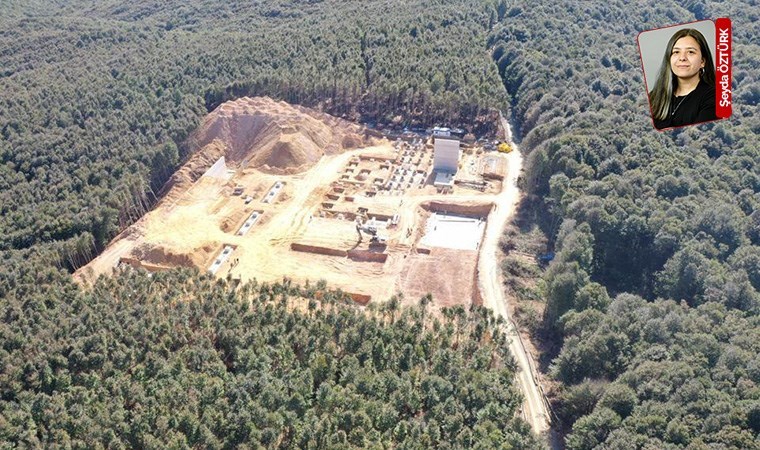 Yıkılması gerekiyor!
Yıkılması gerekiyor!
-
 Erdoğan belayı satın aldı
Erdoğan belayı satın aldı
-
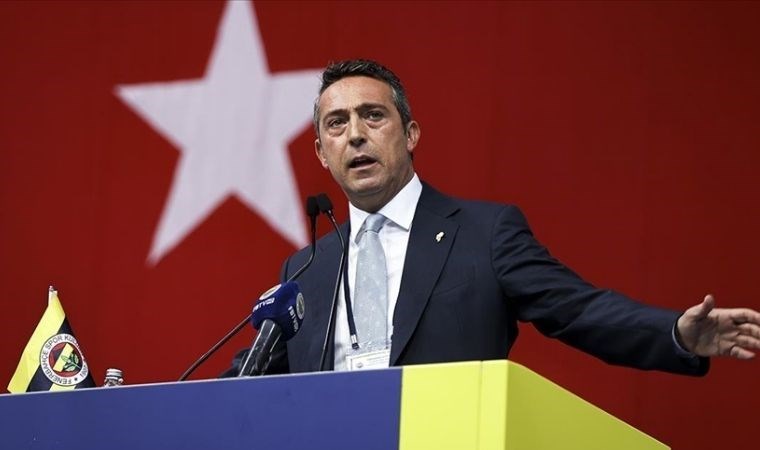 Ali Koç'tan çok sert Kayserispor açıklaması!
Ali Koç'tan çok sert Kayserispor açıklaması!
-
 Ünlü markanın adı bir kez daha listede!
Ünlü markanın adı bir kez daha listede!